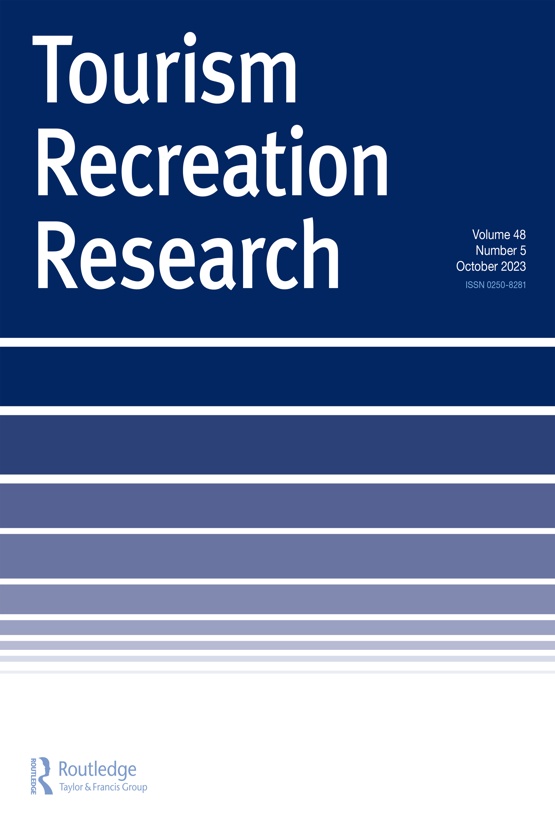Submit a Manuscript to the Journal
Tourism Recreation Research
For a Special Issue on
Ethical and Political Consumerism in Tourism
Abstract deadline
15 April 2024
Manuscript deadline
31 October 2024

Special Issue Editor(s)
Siamak Seyfi,
University of Oulu, Finland
[email protected]
C. Michael Hall,
University of Canterbury, New Zealand
[email protected]
Myung Ja Kim,
Kyung Hee University, Republic of Korea
[email protected]
Ethical and Political Consumerism in Tourism
Overview of the special issue
Ethical consumption, emphasizing choices reflecting moral values and beliefs, has surged in recent decades (Hassan et al., 2022. It involves deliberately selecting ethically sourced goods and encompasses various behaviors such as purchasing fair trade products, advocating against modern slavery, and supporting environmental sustainability (Crane et al., 2008; Fennel, 2006, 2008). This trend extends to political consumerism, where individuals and groups use their purchasing power to influence social, environmental, and political change, targeting products based on ethical or political considerations. This activism evidenced by the growth in consumer purchasing (buycott) or not purchasing (boycott) aims to address desired or objectionable conditions through consumer action (Boström et al., 2019).
As a complex multilevel phenomenon, political and ethical consumerism has become an area of increasing research across a variety of disciplines and has generated academic interest among scholars in political science, political sociology, sustainability, human geography, consumer behavior, and macro- and social marketing. Despite this interdisciplinary attention, the tourism literature remains relatively underdeveloped in studying specific forms of political consumerism within the context of tourism. While research on ethical consumption has expanded within tourism studies, there is still notables gaps to address, especially considering the widespread use of social media and the emergence of generations like Gen Z who are perceived to demonstrate a heightened awareness of global challenges, influencing their ethical consumption behaviors. This is surprising given tourism can also be ‘commodified’ and become an arena for ‘political consumer actions’ (Boström et al., 2019) and political and ethical consumerism are an important feature of the global tourism system and the emerging ethics of tourism (Fennel, 2006, 2008; Hall, 2011; Malone et al., 2014; Lamers et al., 2019; Seyfi & Hall, 2020; Seyfi et al., 2023a).
In response to the growing practices of ethical and political consumerism as an individual consumer action and interest group tactic, this special issue aims to offer a thorough exploration of the political and ethical consumerism phenomenon and help map out the current state of knowledge on political and ethical consumer actions within tourism context. This special issue welcomes theoretical, empirical, experimental, and case study research contributions from a wide range of disciplinary and post-disciplinary perspectives. These contributions should clearly address the theoretical and practical implications of the research. Both conceptual and empirical work are welcome. The proposed topics may include but are not limited to the following:
Topics of interest of the special issue include, but are not limited to:
- Impacts of boycotts and political consumerism on tourism demand
- Boycotts, buycotts and tourism
- Social, cultural and economic perspectives on political and ethical consumerism
- Food consumption and lifestyle political consumerism
- Environmental conservation and eco-friendly tourism initiatives
- Tourism and social justice movements
- Ethical marketing and communication in tourism
- Political consumerism and sustainable tourism
- Boycotts and tourism events
- Case studies of boycotts and campaigns: Reasons, responses and impacts
- Consumer activism as upstream social marketing
- Methodological issues in examining ethical and political consumerism
- Emerging issues in ethical and political consumerism
- Governmental responses to ethical and political consumerism
Looking to Publish your Research?
Find out how to publish your research open access with Taylor & Francis Group.
Choose open accessSubmission Instructions
Expressions of interest are welcome in the form of an extended abstract (1,000 words excluding references) by 15 April 2024 to be sent to the SI guest editors (see emails above). Abstracts should include the title, authorship, author affiliation(s) and contact information (including the email addresses of all authors).
Timeline
Abstracts submissions: 15th April 2024
Abstract decisions: 30th April 2024
Full paper submissions: 31st October 2024
Publication: Late 2025
Each paper submitted for publication consideration is subjected to the standard review process designated by Tourism Recreation Research journal. Based on the recommendations of the reviewers, the Editor-in-chief along with the guest editors, decisions will be made whether particular submissions will be accepted, revised or rejected.